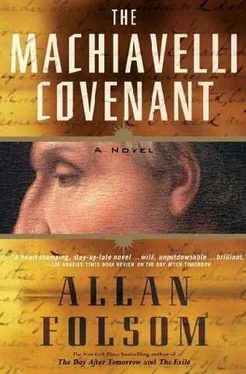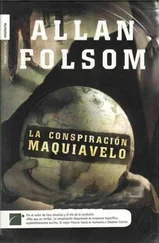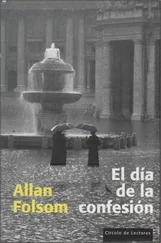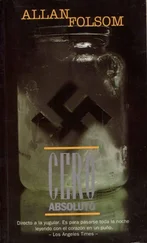"Thanks," Marten said. "Sorry I couldn't help you more." He went out quickly. To his left and down the stairs.
• BERLIN, GERMANY, 10:45 A.M.
The heavy armored doors of the presidential limousine swung closed. The Secret Service agent at the wheel nudged the machine into gear and the car carrying President of the United States John Henry Harris moved slowly away from the German Federal Chancellery, leaving Chancellor Anna Bohlen and a large gathering of the world media behind.
President Harris and Bohlen had met the evening before; had attended a performance of the Berlin Symphony Orchestra; and then, this morning, accompanied by a handful of close advisers, had had a long, cordial breakfast where world issues and the longtime German-American alliance were discussed. Afterward they'd preened for the press, shaken hands and then he had left, the whole thing nearly a mirror copy of what had happened at the Elysée Palace in Paris twenty-four hours earlier. In both situations the president had hoped to start smoothing over the still volatile situation concerning both countries' earlier refusal to support the U.S. invasion of Iraq in the United Nations and their continuing concerns now.
But for all the seeming goodwill and cordiality during both visits, little or nothing had been accomplished and the president was clearly upset. Jake Lowe, his portly fifty-seven-year-old longtime friend and chief political adviser sitting beside him and quietly reading text from a BlackBerry nestled into his palm, knew it.
"None of us can afford this damned ongoing transatlantic rift," Harris said abruptly. "Publicly they agree, but in reality they won't move a quarter of an inch in our direction. Neither one of them."
"It's a difficult path, Mr. President," Lowe responded quietly. The president might characteristically be introspective but anyone who was as close to him as Jake Lowe knew there were times he wanted to talk things through, usually when he had come to a dead end in his own reasoning. "And I'm not sure it has an end that will make everyone happy.
"I've told you this before and I'll say it again now. It's a cruel fact of history that more than once the world has been provided with leaders who are the wrong people in the wrong place at the wrong time. And the only thing that corrects it is a change of régime."
"Well those régimes aren't about to change. And we don't have the luxury to wait for the next. We need everybody with us and right away if we're going to put this Middle East Humpty-Dumpty back together again. You know it. I know it. The world knows it."
"Except the French and the Germans."
President Harris leaned back in his seat, trying to relax. It didn't work. He was angry and frustrated and when he was like that and he talked, everything showed. "Those are two steel-jawed, unbendable SOBs. They'll go along but just so far, and when we really get to it they'll pull back and let us dangle in the wind, all the while clapping their hands in glee. There's got to be a way to turn them, Jake, but the damn truth is I don't have a clue as to what it will take. And after yesterday and today, even how to approach it."
Abruptly President Harris turned to look out the window as his motorcade moved through the Tiergarten, Berlin's dramatic two-mile-long city park, then continued along a widely announced route that would take them down the Kurfürstendamm, the main street of Berlin's fashionable shopping district.
The motorcade itself was huge, led by thirty German motorcycle police with two massive polished black Secret Service SUVs traveling in front of three identical presidential limousines, preventing anyone from knowing in which car the president rode. Immediately behind were eight more Secret Service SUVs, an ambulance, and two large vans, one carrying the press pool, the other, the president's traveling staff. The rear was brought up by another thirty-strong contingent of German motorcycle police.
Since they'd left the Chancellery every street and boulevard was massed with people, as if half of Berlin had turned out for a glimpse of this president. Some applauded and waved small American flags; others booed or whistled, shaking their fists and shouting in anger. Others held banners reading: U.S. OUT OF MIDDLE-EAST, HERR PRÄSIDENT, GEHEN NACH HAUSE, HARRIS GO HOME!, NO MORE BLOOD FOR OIL!-one banner read simply: JOHN, LET'S TALK PLEASE. Other people simply stood and watched as the giant motorcade bearing the leader of the world's lone superpower passed before them.
"I wonder what I'd think if I were a German standing out there watching us go by," Harris said, watching the crowds. "What would I want from the United States? What would I think about her intentions?"
He turned to look at Lowe, one of his best friends and his closest political adviser, a man he had known for years when he first entered the Senate race in California. "What would you think, Jake? What would you think if you were one of them?"
"I would probably-" Lowe's conversation was abruptly cut short when his BlackBerry alerted him to a voice message from Tom Curran, the president's chief of staff, waiting for them aboard Air Force One at Tegel Airport. "Yes, Tom," he said into his ever-present headset. "What? When?… see what more you can find out. We'll be on board in twenty minutes."
"What is it?" the president said.
"Caroline Parsons's personal physician, Lorraine Stephenson, was found murdered last night. The police have held back the news for investigative reasons."
"Murdered?"
"Yes, sir."
"Good Lord." The president's eyes shifted away and he stared off. "Mike, his son, then Caroline, and now her doctor?" he said, then looked back to Jake Lowe. "All dead, just like that, and over so short a period of time. What's going on?"
"It's a tragic coincidence, Mr. President."
"Is it?"
"What else would it be?"
• BERLIN. HOTEL BOULEVARD, KURFÜRSTENDAMM 12, 11:05 A.M.
Victor."
"Yes, Richard. I hear you."
"Are you at the window?"
"Yes, Richard."
"What can you see?"
"The street. All sorts of people lining it. A big church is across from me. The Kaiser Wilhelm Memorial Church. At least that was what the porter called it when he showed me into the room. Why, Richard?"
"I wanted to make certain the hotel didn't give you a different room, that's all."
"No, they didn't. The room is exactly as I requested. I followed your instructions to the letter." Victor no longer wore the gray suit he had in Washington but instead was dressed in light brown slacks and a dark blue oversized cardigan sweater. He still looked like an everyman, but now his appearance was more academic. A middle-aged professor, perhaps, or a high school teacher. Someone unremarkable who would stand unnoticed in a crowd.
"I knew you would, Victor. Now listen carefully. The presidential motorcade has turned onto the Kurfürstendamm. In-" Richard paused for the briefest moment, then went on; "forty seconds it will come into sight and pass beneath your window. The president is in the third presidential limousine. He's sitting on your side of the car, the rear seat next to the left window. You won't be able to see him through the tinted glass but he's there just the same. I want you to tell me how long it takes for the limousine to pass and if you would have time to get a clear shot at that window from where you are."
"A presidential limousine has bulletproof glass."
"I know, Victor. Don't worry about it. All I want you to tell me is how long it takes for the limousine to pass and if you would have time to get a clear shot from that angle."
"Alright."
President Harris stared out the limousine's window absently watching the crowds his motorcade was passing, his thoughts on his secretary of defense, Terrence Lang-don, in the south of France for a meeting of NATO defense ministers. Langdon was essentially delivering the same message that Secretary of State David Chaplin had a day earlier to his twenty-five NATO counterparts at a working lunch in Brussels: that the U.S. was signaling a new readiness to work more closely with its NATO allies, something the previous administration under President Charles Cabot had all but refused to do.
Читать дальше












